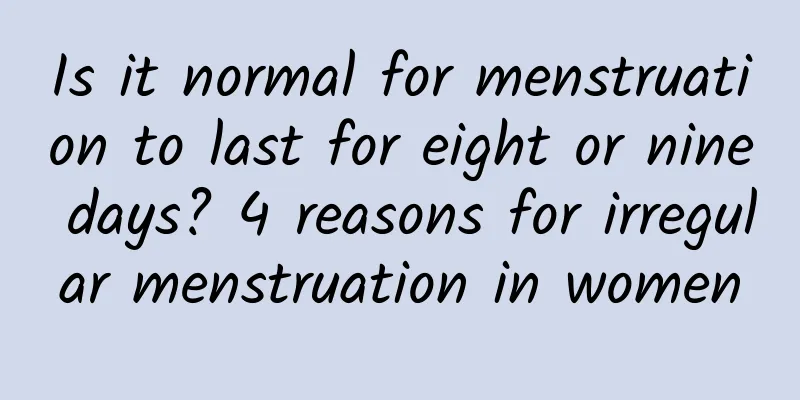How to get rid of obesity and "tuna belly"? Traditional Chinese Medicine: Drinking dehumidifying and fat-removing tea, 3 tips to effectively control body fat

|
Don’t want to face the weighing scale after the Chinese New Year? During the Chinese New Year, we gather with family and friends for dinner and enjoy delicious food. In addition, staying up late to watch TV series and movies is inevitable, various snacks are indispensable. With one bite after another, weight increases unknowingly. In addition, the diet is mainly composed of fish and meat that are difficult to digest. Therefore, it is more likely to have symptoms such as constipation, bloating, and farting. How can you save yourself if you want to quickly get rid of obesity and get rid of the "tuna belly"? Chinese medicine practitioners recommend drinking "dehumidifying and fat-removing tea" and remembering these 3 tips to help control body fat. Lai Bo-cheng, attending physician of the Department of Traditional Chinese Medicine at the Ministry of Health and Welfare's Taipei Hospital, said that overeating and irregular work and rest schedules are common during the New Year period, which in the long run leads to hormonal disorders and abnormal metabolism, resulting in excessive calories that cannot be consumed. The excess calories are converted into sugars and fats and stored, causing weight to remain high. In particular, the abdomen is where fat is most likely to accumulate. Long-term obesity will increase the risk of cardiovascular disease, high blood pressure, type 2 diabetes, fatty liver, sleep apnea, various arthritis, etc. It can be said to be a major killer that endangers health. According to the definition of the World Health Organization (WHO), the Body Mass Index (BMI) is used as an indicator, which is weight (kg) divided by the square of height (m). If it is greater than 24, it is considered overweight, and if it is greater than 30, it is considered obese. Later, the "waist-to-hip ratio" was added. If the waist circumference is ≧0.90 to the hip circumference of men, it is considered obese; if it is ≧0.85 for women, it is considered obese. Chinese medicine practitioner Lai Bo-cheng pointed out that some people do not have fat limbs and their weight is within a reasonable range, but too much fat is accumulated in the abdomen and around the navel, which is the common "tuna belly" or "beer belly". Excess fat tends to accumulate around the internal organs, which is medically known as central obesity. It is more serious than other types of obesity and is the main type of obesity that causes cardiovascular disease. Drinking an appropriate amount of water before meals every day and increasing the intake of leafy vegetables can not only increase satiety and reduce food intake, but also normalize bowel movements and help with weight control. How does traditional Chinese medicine view obesity? The ancient Chinese medical book "Inner Canon of the Yellow Emperor" once mentioned: "The spleen and stomach are the organs of storage, and the five flavors come from them." This means that the spleen and stomach have the function of digesting food and absorbing nutrients, and provide a warehouse for nutrients for organs and the whole body. The spleen and stomach are the sea of water and grain, and are the foundation of acquired constitution. Only with proper diet and normal gastrointestinal function can the body function normally. If the diet is disordered, eating too much or too little, the spleen and stomach will be dysfunctional in the long run, and the function of transporting and transforming water will be abnormal. Excessive water is called "phlegm and dampness" in traditional Chinese medicine, which is the metabolic waste that the body does not need. It is also the main cause of obesity. Traditional Chinese medicine believes that this is the root cause of the disease. Compared with the visible phlegm and dampness, coughing and excessive sputum secretion are the main manifestations. The invisible phlegm and dampness are manifested as dizziness and heaviness, chest stuffiness, nausea, poor spirits, heavy limbs, pale complexion, pale and fat tongue, and greasy tongue coating. Traditional Chinese medicine treats obesity according to different syndromes. Dr. Lai Bozheng, a Chinese medicine practitioner, said that the main cause of obesity is phlegm and dampness. In addition, there are different causes such as excessive stomach fire, weak spleen and stomach, stagnation of liver qi, and food stagnation. If the treatment is for obesity mainly caused by phlegm and dampness, resolving phlegm and removing dampness is the main principle of treatment. In addition to treating the symptoms, it is also necessary to treat the root cause, strengthen the spleen, and adjust gastrointestinal function to keep the body in a healthy state. The following are suggestions for making your own "dehumidifying and fat-removing tea" as a weight loss diet: 【Dehumidifying and fat-removing tea】 1. Ingredients: 3 qian of hawthorn, 2 qian of tangerine peel, 2 qian of poria, 2 qian of atractylodes, 3 qian of cassia seed. 2. Method: Wash the herbs, pack them in tea bags, and take them with 800C.C hot water for about 10 minutes. After the temperature drops, drink it warm. Dr. Lai Bozheng, a Chinese medicine practitioner, reminds us that this tea is suitable for drinking before meals, but not everyone can drink it. If you normally secrete too much stomach acid, it is not recommended to drink it on an empty stomach. In addition, remember the following 3 daily tips to control body fat: For obesity mainly caused by phlegm and dampness, the following suggestions are made to make your own "dehumidifying and fat-removing tea" as a weight loss diet therapy. 【3 daily tips to control body fat】 1. Eat less and move more: This is a cliché, but eating less and exercising more is the only way to control your weight. If you eat more and consume less, your weight will naturally increase. Dr. Lai Bozheng recommends that you first measure your basal metabolic rate. If the total daily calorie demand exceeds the basal metabolic rate, the excess calories will accumulate and the weight will increase; if the additional daily calories consumed exceed the excess calories, the body will be in a calorie deficit state, burning fat and consuming calories will be more efficient. 2. Eat and rest normally: It is also very important to have a regular diet and rest schedule and not stay up late. If you have irregular meals, eat without restraint, and like high-calorie foods such as fried, barbecued, and desserts, you will naturally gain weight due to excessive calorie intake. 3. Develop normal bowel habits: Overeating and not drinking enough water often leads to constipation, which is one of the reasons for weight gain. Drinking an appropriate amount of water before meals every day and increasing the intake of leafy vegetables can not only increase satiety and reduce food intake, but also normalize bowel movements and help with weight control. Dr. Lai Bozheng, a Chinese medicine practitioner, finally reminded that weight control is not a short-term goal, so you must have a good mental preparation, you must follow the steps and set reasonable goals. Losing 3-4 kg a month is a reasonable range. Unrealistic weight loss will often lead to giving up halfway. |
Recommend
What do cervical warts look like?
Do you know what cervical warts look like? Cervic...
What are the symptoms of giant uterine fibroids? How to treat giant uterine fibroids?
The name of giant uterine fibroids is scary, and ...
What causes cervicitis?
Cervical inflammation is generally caused by path...
Causes of acute pelvic inflammatory disease
What is acute pelvic inflammatory disease? Many w...
How long does it take to get menstruation after laparoscopic surgery for ovarian cysts
For most ovarian cysts, laparoscopic surgery caus...
Don’t eat right away on an empty stomach! Exercise first to lose weight faster
When I feel "hungry", I always have a s...
It's unexpected! The best diet of 2018 is him, and the ketogenic diet is the last
Guess which food trend will be the most popular i...
Five common treatments for adnexitis
The high incidence of gynecological diseases has ...
How long after a miscarriage can you have sex? How should you take care of yourself after a miscarriage?
There are different types of miscarriage. If it i...
How to Treat Endometriosis
With the increasing incidence of endometriosis an...
This is great for gaining muscle and losing fat! What is Turkish Yogurt Egg Salad? Nutritionist teaches you DIY
What should you do if you want to successfully lo...
Tap your face to lose weight? Doctor: Press 4 acupoints to get a firm grip
Foreign media reported that a new book titled &qu...
The main reasons why women suffer from cervical erosion
Cervical erosion is a serious gynecological disea...
How much hcg is considered an ectopic pregnancy
There is no exact limit in medicine on the amount...
Can endometrial hyperplasia turn into cancer? Nutritionist Huang Xiaotong: 5 dietary tips to prevent cancer
Will endometrial hyperplasia really progress to e...









